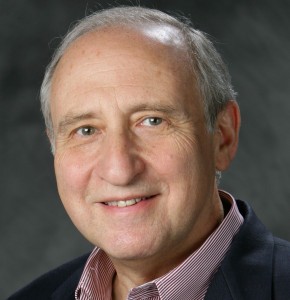If someone is not speaking up then we should be worried
Ben Shneiderman has had a huge impact on everything we do. A father of the field of Human Computer Interaction, Ben is Professor for Computer Science at the University of Maryland Human-Computer Interaction Lab. Ben pioneered the highlighted textual link in 1983, and it became part of Hyperties, a precursor to the web. Ben is the author of Software Psychology: Human Factors in Computer and Information Systems (1980) and Designing the User Interface: Strategies for Effective Human-Computer Interaction (5th ed., 2010, with C. Plaisant) and Leonardo’s Laptop: Human Needs and the New Computing Technologies (MIT Press), won the IEEE Award for Distinguished Literary Contribution in 2004.
What you probably didn’t know is that Ben has strong views about the role of activism within Human Computer Interaction, “we have”, he says “an enormous opportunity to make a difference…the very nature of Human Computer Interaction is an activist agenda”.
We should expect as mature adults and professionals to be engaged in making a better world
If someone is not speaking up then we should be worried
This conversation was recorded after we spoke at a panel on activism at CHI 2013 “CHI at the barricades: an activist agenda?“. Ben highlights some challenges for us to continue to go beyond the technical, and to build sciences around social processes:
We need to shift towards human centred sets of metrics that looks at the number of megacontribs, terracollabs, and petathank-yous.
How do we create a language and metric of the human experience of technology that goes beyond bits and bytes and looks at human questions of trust, empathy, responsibility and privacy?
The problems we face …require technical solutions to be informed by a sensitivity to the social
Thinking with new language is the way we transform ourselves.
How can we enable marginalised individuals and communities to have a voice?
How can we build in leadership structures?
Changing the language we use and the way we engage with people could make a difference

